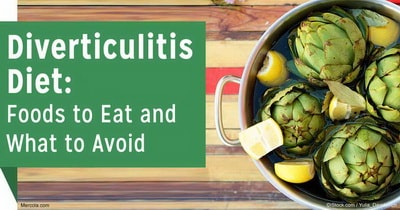Diverticulitis Food To Avoid And To Eat
 Diverticulitis is basically a condition of the colon. It is whereby the diverticuli get to rupture after a period of inflammation. The rupture always ends up costly even for the organs that surround the affected colon. This is because it tends to cause some sort of infection on the surrounding tissues which in the end turns out to be hazardous. Diverticuli is small protrusions that form on the walls of the colon.
Diverticulitis is basically a condition of the colon. It is whereby the diverticuli get to rupture after a period of inflammation. The rupture always ends up costly even for the organs that surround the affected colon. This is because it tends to cause some sort of infection on the surrounding tissues which in the end turns out to be hazardous. Diverticuli is small protrusions that form on the walls of the colon.
The main aim of the colon is to store food as well as act as a passage for waste food as it flows to the anal region. In that case, there is a high possibility of tiny food particles clogging up the walls. The clogging gets deeper within time due to the pressure exerted on them by the waste and other food particles as they flow along the colon.
At the end of the day, they end up becoming small sac-like protrusions on the wall. Due to old age, they grow weaker and end up bursting. This is what we refer to as Diverticulitis. It is most common in the sigmoid colon which is the region at the end of the left-side colon.
There is a wide range of symptoms. However, people suffering from the disease often have no symptoms at all. Research has shown that only about 23% of those with Diverticulitis get to exhibit the symptoms. The main symptoms of this disorder include stomach disorders such as constipation and diarrhea. In addition to this, the abdominal are gets to experience some cramps that cause a lot of discomfort to the individual. However, when the disorder gets severe, the symptoms also intensify.
The colon gets completely obstructed which makes it difficult for one to digest. In addition to this, the pelvis tends to disappear and one gets to experience a lot of bleeding in the colon.
Treating this disorder can be very tricky especially in severe cases. There are various medical options given by doctors but the most important of all is sticking to a particular kind of diet that will go a long way in ensuring that one gets better soon. The diet mainly incorporates foods that are low on fiber. This mainly helps when the disease is still in its flare-up stage so as to get rid of the bowel volume. Once the bowel volume goes down, then the infection automatically heals.
Preferably, one should stick to a diet that includes 10 grams of fiber on a daily basis. This is the preferred diet for any Diverticulitis patient. However, there are cases where this diet does not automatically work as planned. This is when the condition was quite severe. In such cases, doctors normally recommend that one looks for a suitable multivitamin supplement to be taking on daily.
During a Diverticulitis flare-up, one needs some mild food that will not worsen the condition of the colon. Grain products are very good for such a diet. They are mild and at the same time are low on fiber.
To start with, white bread that has been refined and enriched could go a long way in helping you get well. Others include English muffins, buns and bagels. Most of us love rice, but in this case, it is avoidable to restrict oneself to white rice. It is better for your diet. Refined pasta, as well as noodles, might also act as very good compliments. Plain cereals such as Cornflakes are also good for your diet.
When it comes to cookies, avoid the very sugary ones. Rather go for arrowroot cookies or soda crackers. They contain very little fiber and can not in any way mess with your colon. It is also important to note that whole grains will only worsen the diverticuli; avoid them!
As usual, vegetables always boost your health. This is not the exception; vegetables are a must. However, not all kinds of vegetables should be eaten when one is suffering from Diverticulitis.
Those from the cruciferous family are quit hazardous at such a time. They include the likes of kales, cauliflower, and cabbage and to the relief of many, broccoli. Alternatively one take vegetables such as potatoes minus the skin, carrots, cucumber, squash, beets, green beans, yellow beans, celery and the egg plant. You can also go for vegetable juices.
The fact that one has Diverticulitis does not mean he or she cannot eat meat. However, it is important to make sure that the meat is very tender and cooked to perfection. Otherwise, it might end up harming the colon. On the other hand, keep off seeds or nuts or even any kind of food that contains any of the two.
Last but not least, fruits are a must! However, berries and dried fruits are not advisable. If possible, stick to fruit juices. Prune juice, however, is not in the list of to-drink juices. Fruits such as grapes, peaches, bananas and water melons are just perfect.